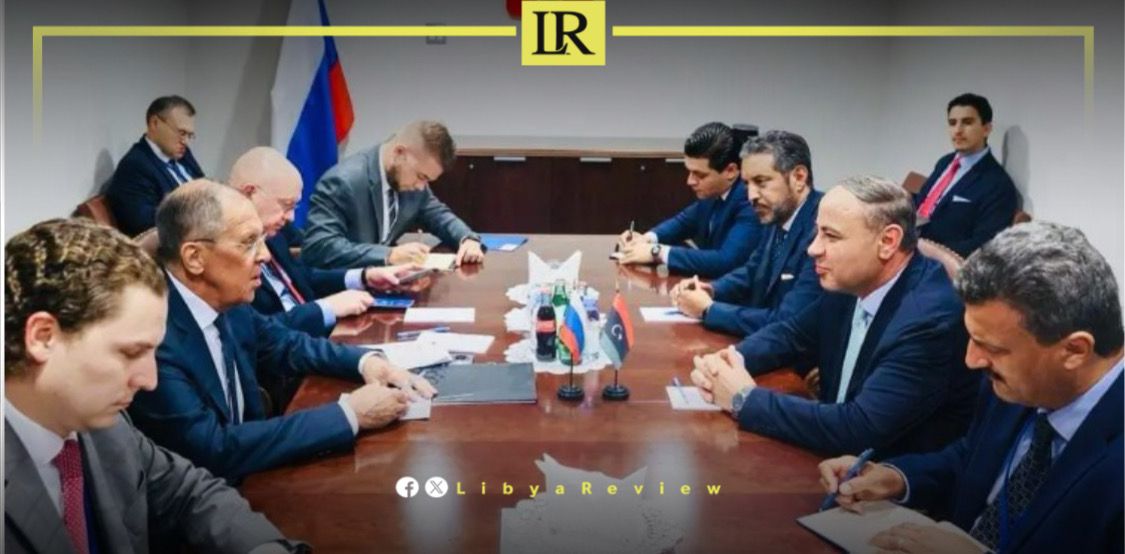On Wednesday, Libya’s Acting Foreign Minister, Taher Al-Baour, met with Russian Foreign Minister Sergey Lavrov.
This comes on the sidelines of Libya’s participation in the ministerial session of the UN Security Council dedicated to the situation in the Middle East, including the Palestinian issue,
Their discussions focused on enhancing and developing bilateral relations to serve mutual interests, as well as the possibility of activating joint committees to benefit both nations.
Lavrov expressed optimism about reaching a comprehensive agreement among Libyan parties. According to a statement released by the Russian Foreign Ministry following their meeting, discussions centered on the evolving situation in Libya. Lavrov reaffirmed Russia’s steadfast commitment to supporting sustainable stability in the country.
The discussions emphasized the importance of an inclusive national dialogue aimed at safeguarding Libya’s territorial integrity, unity, and sovereignty.
The statement highlighted Moscow’s hope for a comprehensive agreement among Libyans, which is essential for successfully addressing the challenges of the transitional period, including preparations for national elections. Both parties underscored the need for increased international support for the Libyan people in advancing the political process, with the United Nations playing a crucial role.
Additionally, the statement noted a mutual interest in strengthening multifaceted trade partnerships, signaling a shared commitment to fostering economic collaboration between Russia and Libya.
Libya has been grappling with political instability and conflict since the fall of Muammar Gaddafi’s regime in 2011. The country has since been divided between rival factions, each supported by different international actors.
The emphasis on an inclusive national dialogue aligns with broader international efforts to resolve the Libyan crisis. Such dialogue is crucial for addressing grievances, building consensus, and establishing a unified framework for governance. Successful dialogue can pave the way for free and fair elections, which are seen as a vital step towards long-term stability.
The call for increased international support and a pivotal UN role underscores the complexity of the Libyan situation. International actors, including the UN, have been actively involved in facilitating peace talks and supporting humanitarian efforts. Enhanced support from the global community is essential for addressing Libya’s multifaceted challenges and ensuring a smooth transition.


